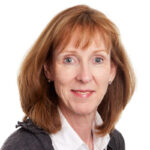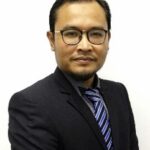
University of Cambridge
The University of Cambridge, based in Cambridge, UK, has been a leading academic institution for over eight centuries. The University’s mission is to contribute to society through the pursuit of education, learning and research at the highest international levels of excellence. The University proudly hosts over 20,000 students from 140 countries who are spread across 31 Colleges, 6 Schools and over 150 Faculties and Departments.
Role in the project
The University of Cambridge is involved in the Work Package 2 of ODELIA. This involves the creation of a local breast MR dataset from which to train local AI models to test against the swarm model. Researchers in Cambridge’s Department of Radiology have experience in curating and working with large imaging databases and, in recent years, this has been applied to use with AI systems. The department’s integration with Cambridge University Hospitals allows it to leverage the expertise in high quality MR imaging and highly skilled radiologists.
Fiona Gilbert

Prof Fiona Gilbert, Radiology department, University of Cambridge is an internationally respected radiologist and clinical academic. She has held various positions – Chair of the Academic committee of the Royal College of Radiologists, Chair of the NCRI Imaging Advisory group, Chair of the Royal College of Radiologists Breast Group, and co-chair of the NCRI PET Research Development group and is a past President of the European Society of Breast Imaging and past chair of the breast subcommittee of Radiological Society of North America. She is Lead advisor for AI for clinical radiology at the Royal College of Radiologists. She also sits on the Research & development committee of RSNA.
Her research interests include evaluation of novel imaging technology, risk-adaptive breast screening, and the impact of artificial intelligence in medical imaging.
Nicholas Payne

Dr Nicholas Payne is a research associate with a Ph.D. in medical physics and a background in fast field-cycling MRI. He joined the University of Cambridge in 2019 and has been involved in breast cancer screening research covering supplemental imaging, risk prediction, and the of evaluation of AI algorithms in medical imaging.
Kamarul Amin Abdullah

Kamarul Amin Abdullah is a visiting post-doctoral researcher with the Breast and AI Research Group, Radiology Department, University of Cambridge. His research focuses on developing and optimizing deep learning models for breast cancer detection and classification using breast MRI. With a strong background in medical imaging, he aims to bridge the gap between AI and clinical applications to improve early cancer diagnosis and treatment outcomes. Kamarul completed his PhD in Medical Imaging in 2018 at The University of Sydney, Australia. His current role involves processing breast MRI datasets, including preprocessing and re-anonymization, as part of the preparation for integrating datasets to support the ODELIA public challenge and pan-European Swarm Learning initiatives.